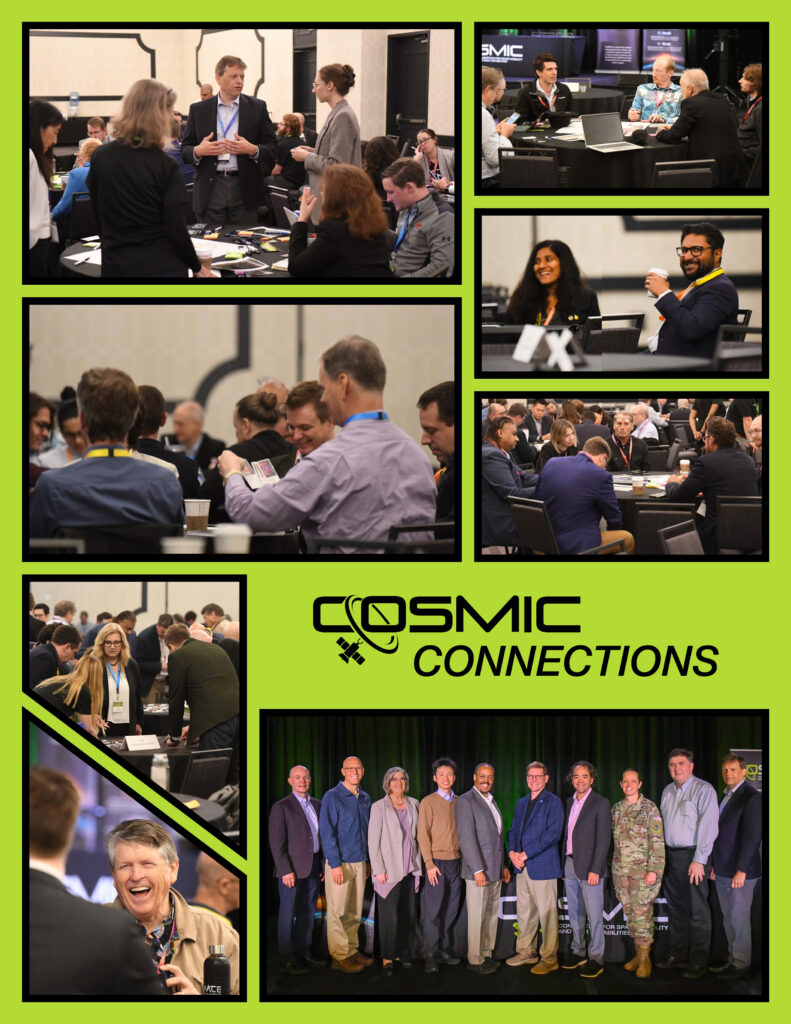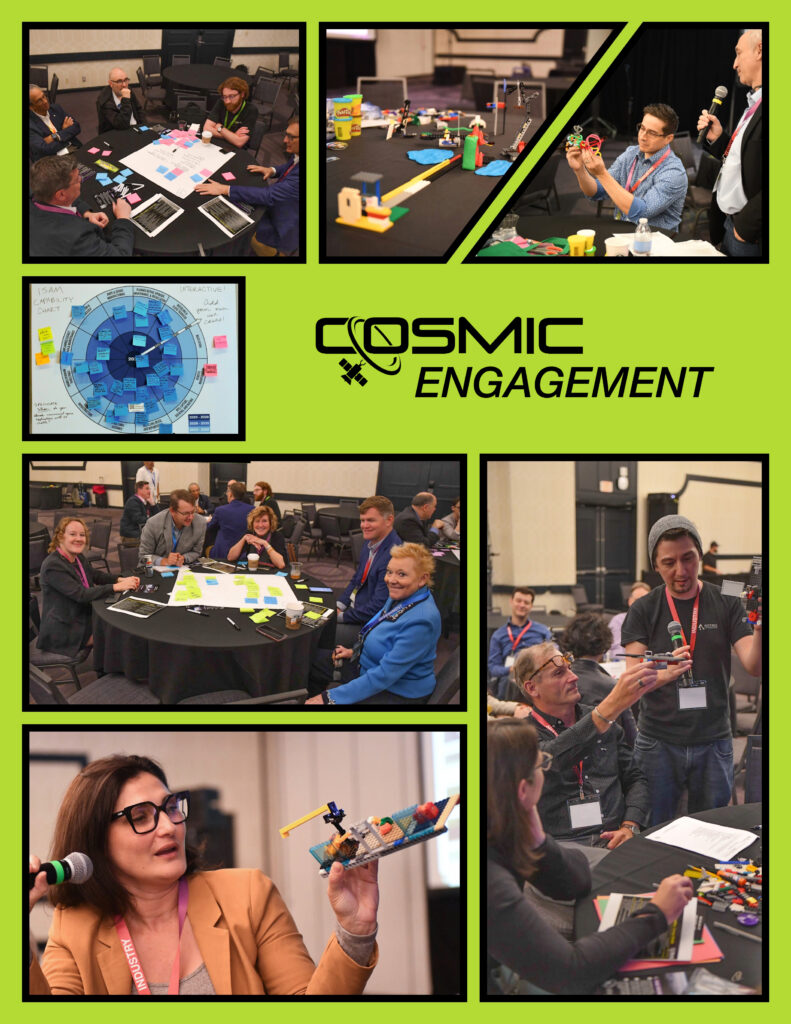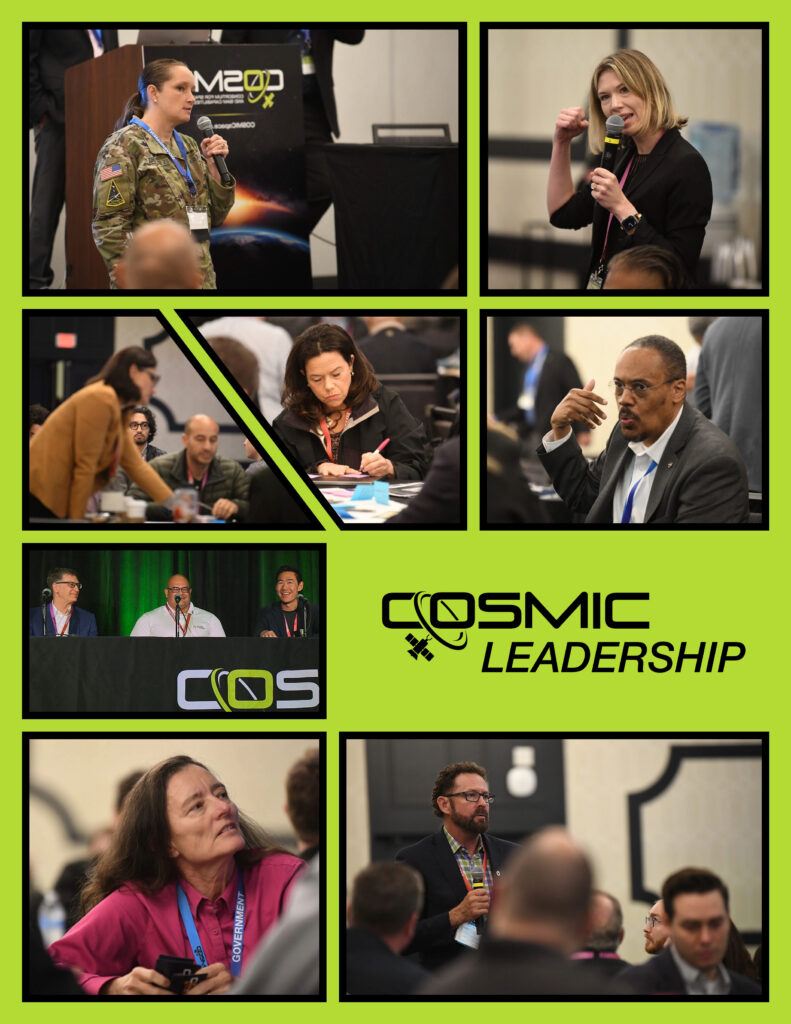COSMIC Crossroads
COSMIC Crossroads is short documentary that explores how America is leading efforts to build the Space Superhighway — and how these technologies are being developed by organizations across the nation to maintain U.S leadership in space. Featuring experts from NASA, the U.S. Space Force, the aerospace industry, and academia. Learn how In-space Servicing, Assembly, and Manufacturing (ISAM) will extend the life of satellites, reduce space debris, and build a future where space is safe, scalable, and sustainable.
Share on LinkedIn — Share on Facebook — Share on Twitter
What is ISAM?
ISAM stands for In-space Servicing, Assembly, and Manufacturing and is a suite of technological capabilities for use in Earth orbit, cislunar space, deep space, and on the surface of celestial bodies.
Servicing
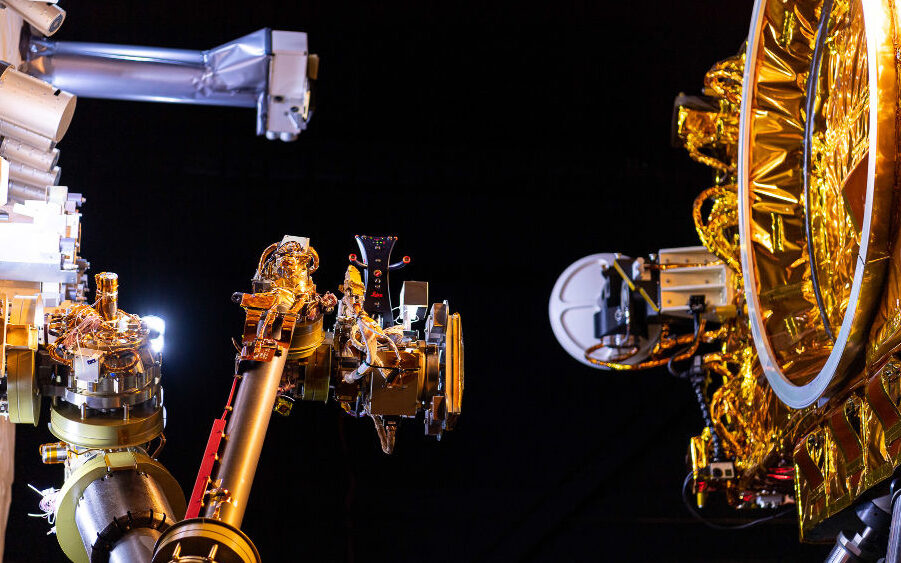
In-space servicing involves two or more spacecraft engaging in activities that require rendezvous and proximity operations and in some instances docking. Servicer spacecraft interact with client spacecraft to perform a variety of activities, including but not limited to: refueling, component changeout, upgrade and repair, orbit modification and maintenance, software transfer, and inspection.
Assembly
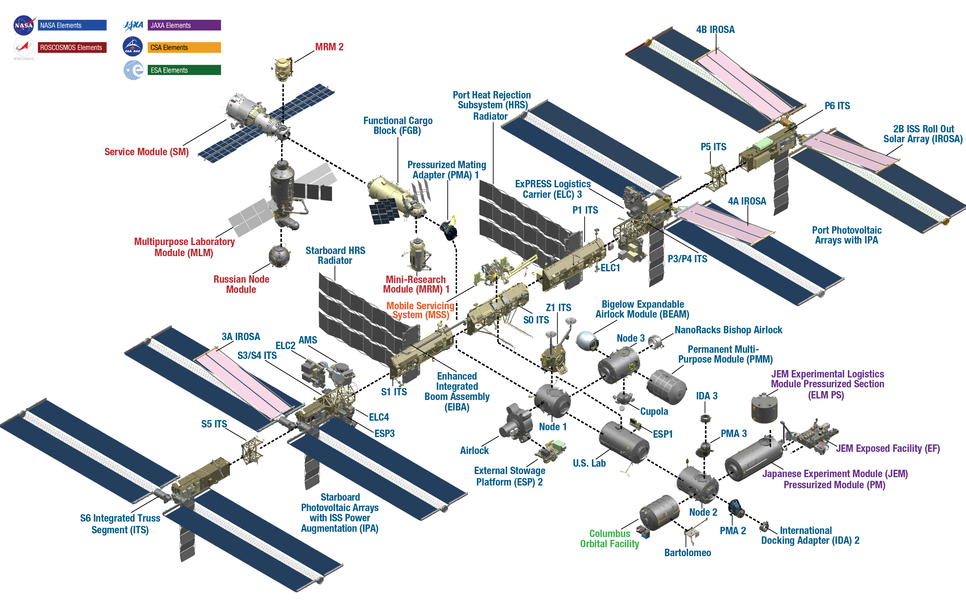
In-space assembly involves the construction of physical systems in space using pre-manufactured materials. The conjoining of materials to create a larger structure in space requires capabilities and technologies used for in-space servicing, such as robotic arms.
Manufacturing
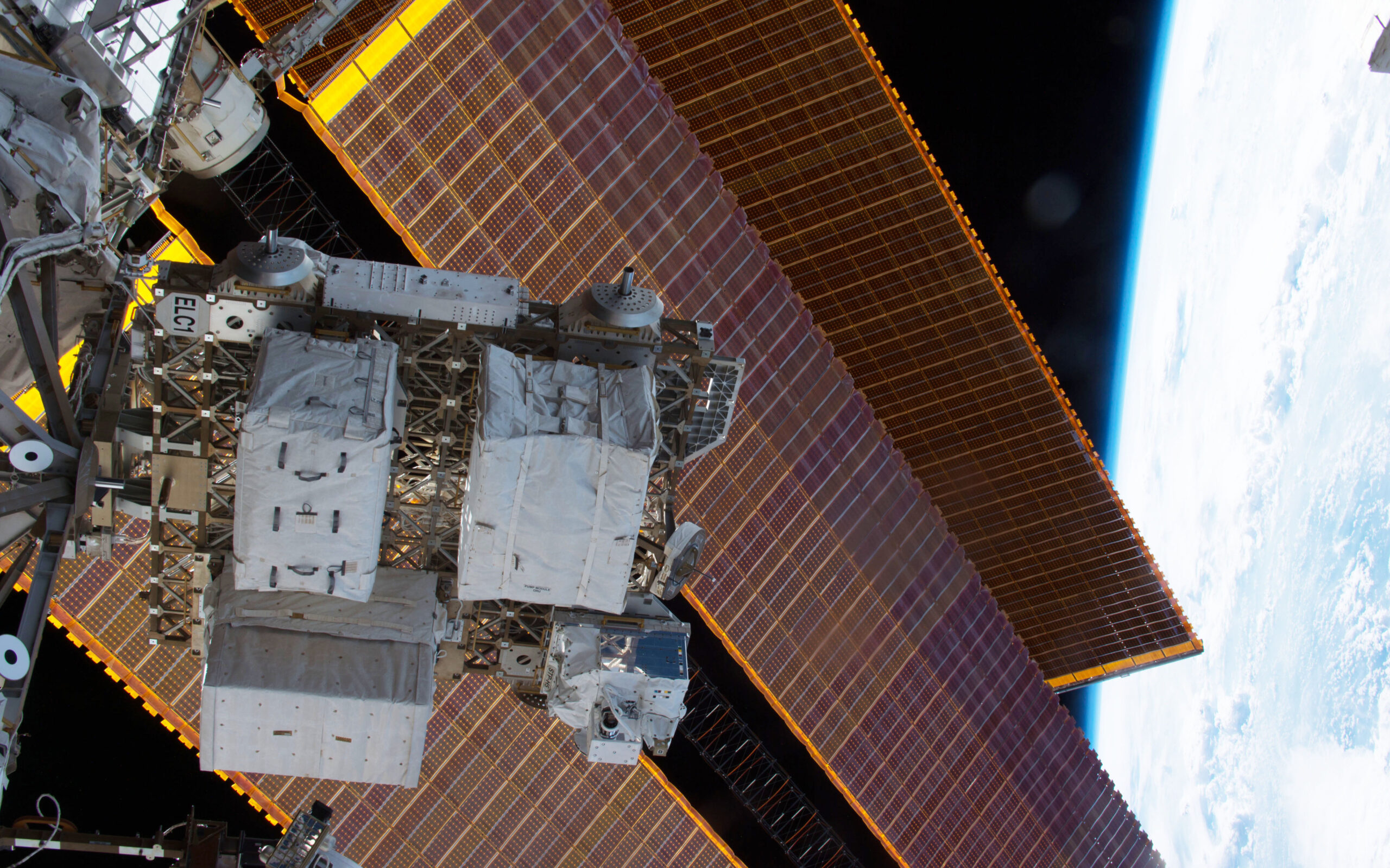
In-space manufacturing involves the creation of new materials, objects, and structures in space through the use of raw materials. In-space manufacturing techniques such as additive manufacturing produce objects and structures for use both in-space and on the surface of celestial bodies.
ISAM is a Federal Imperative
White House/OSTP
The White House previously released the National ISAM Implementation Plan (in response to the ISAM National Strategy) to provide an interagency implementation plan to guide the activities of the U.S. Government in addressing ISAM challenges.
The strategy and implementation plan define six strategic goals that build on existing investments and emerging capabilities and chart a course for using a national approach to realize the opportunities enabled by ISAM.
The six strategic goals are:
- Advance ISAM research and development
- Prioritize the expansion of scalable ISAM infrastructure
- Accelerate the emerging ISAM commercial industry
- Promote international collaboration and cooperation to achieve ISAM goals
- Prioritize environmental sustainability as we move forward with ISAM capabilities
- Inspire a diverse future workforce as a potential outcome of ISAM innovation
The Implementation Plan called for a national consortium to improve communication between government, industry, and academia.
Thus, COSMIC was constructed to assemble stakeholders, including Federal agencies, universities, non-profit research institutions, existing ISAM organizations, non-traditional providers, and commercial companies – particularly the space start-up community – to assess ISAM opportunities and needs.
NASA
Per NASA’s Exploration & In-space Services (NExIS) program, “Robots are poised to make what was once thought to be impossible in space a reality. From extending the lifespan of satellites, to assembling massive life-seeking telescopes in space, to refueling and repairing spacecraft on journeys to distant locations, the possibilities are endless. To achieve these endeavors it is essential to demonstrate foundational capabilities – servicing, assembly, and manufacturing.
Additional NASA Resources:
- NASA Space Technology Mission Directorate: EXPLORE: In-space Servicing, Assembly, and Manufacturing (ISAM) and Rendezvous, Proximity Operations and Capture (RPOC). August 2023.
- NASA ISAM State of Play surveys ISAM capabilities across industry and government agencies: Link
- Astronauts, Robots and the History of Fixing and Building Things in Space: Link
DOD / FFRDC / Non-Profit Analysis
- DOD Commercial Space Integration Strategy: Link to Defense.gov
- RAND report on ISAM drivers, challenges, policy implications: Link
- Aerospace CSPS report: Game Changer: In-Space Servicing, Assembly, and Manufacturing for the New Space: Aerospace CSPS
- Institute for Defense Analysis STPI report on global trends in ISAM: Link
- Space Foundation report on On Orbit Servicing policy: Link
Learn more about COSMIC
COSMIC’s Mission is creating a nationwide alliance that enables the U.S. space community to provide global leadership with ISAM as a routine part of space architectures and mission lifecycles.
COSMIC does this by bringing together over 1,200 leading space experts, engineers, developers, lawyers, and others from 250+ member organizations. These organizations include domestic companies large and small, federal agencies, and academic and research institutions.
Find out more about COSMIC here, the five Focus Areas COSMIC convenes here, and how to join COSMIC at cosmicspace.org/membership/.

